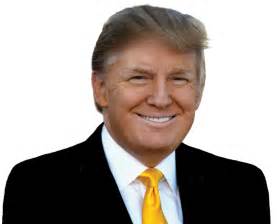
Due to rising market prices and an increase in the number of individual investors across the globe , many people are seeking alternatives. For these kinds of investments , there is a sizable secondary market in shares that exists outside from the major stock markets. Unlisted share trading is done since they are not traded on regulated stock exchanges.
Unlisted shares lack the transparency and availability of the SEBI-regulated financial markets. However, if you list them on a stock market, you may see substantial gains.
What are the Options for Buying Privately Held Stock?
Unlisted shares, in contrast to listed shares, really aren’t tradable on stock exchanges. So, here’s how you can put your money to work for you:
- Paying the promoters themselves for goods
Those who want to participate directly in a company might do so via private placements by purchasing unlisted shares from the promoters. Get in touch with a brokerage, investment group, or financial planner for assistance with price discovery and appraisal before committing capital. They may also facilitate communication between you and the company’s backers to assist you both settle on a reasonable price.
- hiring current staff
As a benefit, many firms now allow their workers to purchase shares of stock. You may identify workers who are eager to sell the shares by establishing contact with platforms that specialise in the procurement and sale of unlisted shares. Agents working for these firms provide ESOPs for workers at set costs. There are startups that are not yet publicly traded, and this is the only way to acquire their stock.
- Investments Made Before an Initial Public Offering
To purchase and sell a company’s value before its initial public offering (IPO) is known as pre-IPO dealing. Unlisted shares may be traded on the platforms provided by a number of investing firms. If the trade is conducted privately, the unlisted company’s shares will still be sent to one’s Demat account immediately.
Also, you have the option of putting your money into private companies that aren’t yet publicly traded but show great promise for explosive development. A minimum of Rs. 50,000 is required for such transactions.
- Planned Maintenance System and Alternate Investment Fund
Individual investors may take use of PMS (provided by a number of different financial organisations. Professionally managed stock portfolios, or PMS, are those that are run by experts in the field of finance in accordance with predetermined investment goals.
Institutional and Elevated investors may pool their money together in Alternate Investment Funds (AIFs). The goals of each of these funds are similar: to get a financial advantage from the increase in value that occurs after an IPO is listed.
Which company to Choose?
Companies that are not publicly traded are often in their formative years. Some of the most anticipated new-age establishments are included. These are cutting-edge digital enterprises operating in fields as diverse as banking, video games, e-commerce, technology, and more. Also included are the offshoots of well-known Corporations. Among the industries one of the most well known stocks in India is lava international. The lava international share price currently is Rs 145.
Final verdict
Sometimes crucial details, such as the size of a firm or its market capitalization, are unavailable. It might be dangerous to put money into some companies due to their very hazardous business strategy. You should, therefore, do your homework before putting money into unlisted stocks in India. Since they are traded on OTC exchanges, these investments go by another name. Unlisted securities may be traded in these markets with the help of market operators or dealers.

